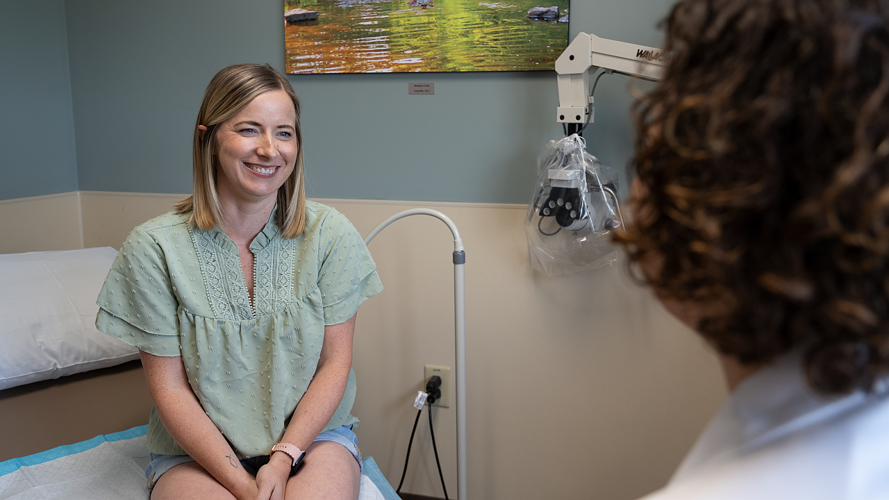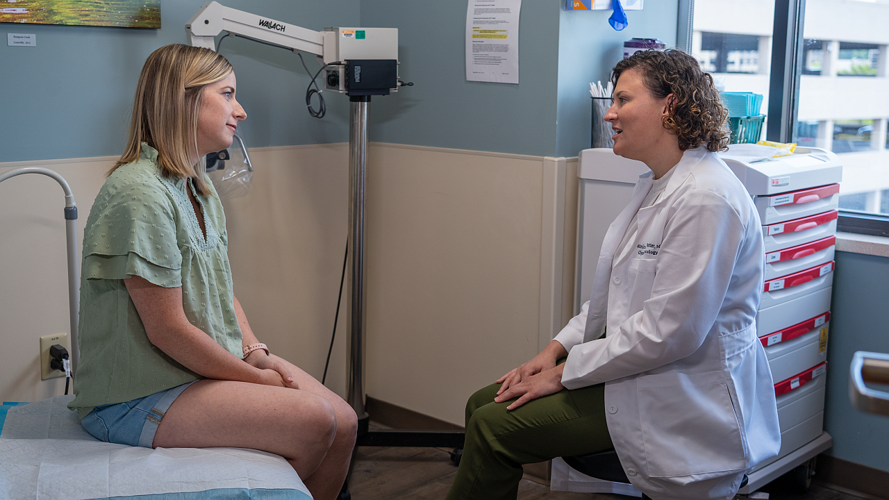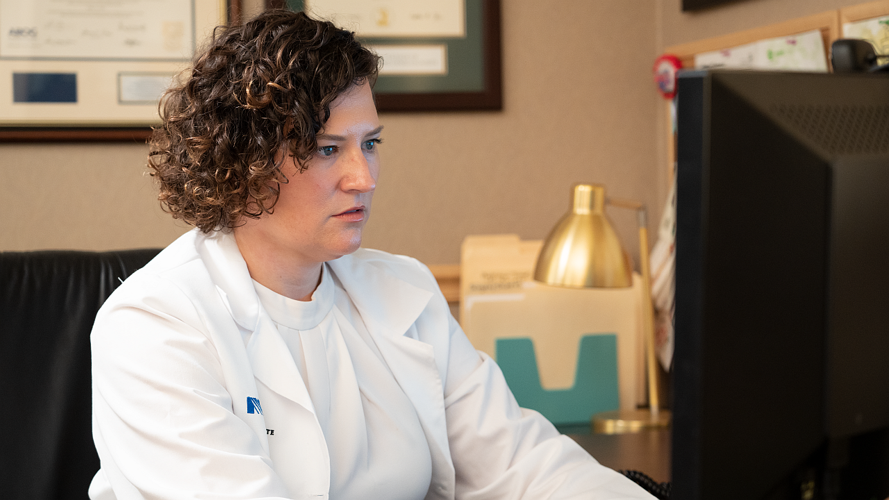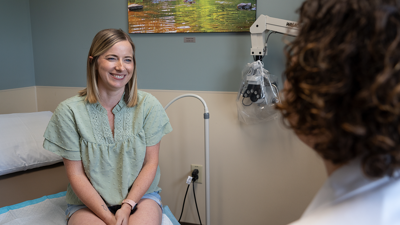When it comes to dealing with the intimate subject of women’s reproductive health, the embarrassment factor can be very real. It takes getting past that invisible barrier to prevent cervical cancer — so crucial in Kentucky, which has one of the highest rates of the disease in the nation.
That’s the mission of Monica H. Vetter, M.D., a gynecologic oncologist at Norton Cancer Institute in Louisville. Dr. Vetter is a subspecialized provider who offers cervical cancer patients better odds of living longer, getting into clinical trials and being cured. Cervical cancer itself is almost completely preventable, thanks to the screening techniques used by Norton Healthcare providers and facilities.
But it takes getting past that embarrassment factor first.
“I think there’s a lot of reluctance to talk about cervical cancer and Pap smears because getting a Pap smear is very intimate with your physician. It can be something people think is embarrassing, because, as a society, we don’t talk about the female reproductive system a lot,” Dr. Vetter said. “So, I think it’s just a lack of awareness.”
Almost entirely preventable?
Kentucky has the fourth-worst rate of cervical cancer in the nation, according to the Centers for Disease Control and Prevention, with the commonwealth’s incidence of 9.9 cases per 100,000 women higher than the national rate of 7 cases per 100,000. According to Dr. Vetter, those figures primarily are driven by the lack of adherence to screening guidelines, particularly in Kentucky's eastern Appalachian region, where women may struggle to find easy access to gynecological screening at all.
Thankfully, that’s not the case in Greater Louisville, where Norton Cancer Institute offers cancer patients the most modern treatments and access to hundreds of clinical trials. In the case of cervical cancer, those screenings are particularly vital — because with them, the disease is almost entirely preventable.
“In the United States, cervical cancer is almost 100% preventable because of things like Pap smears, where we can catch things like HPV infections that make people more prone to developing cervical precancers,” Dr. Vetter said. “We actually can catch precancerous cells as they go on the spectrum from early, precancerous changes all the way to right before cervical cancer. And if you can identify these cells early, you can intervene so that a person never goes on to develop cervical cancer."
But there are occasional obstacles to getting screened — like lack of access in Appalachia, or busy mothers who never get around to it, or the embarrassment factor. The danger there is that early-stage cervical cancer, which can be detected by a Pap smear, often has few symptoms or no symptoms. When there are symptoms, like bleeding during intercourse or bleeding in between periods, they can be the kind patients don’t want to talk about or assume is related to something else.

“Bleeding with intercourse is a huge one — but no one wants to talk about bleeding during intercourse,” Dr. Vetter said. “There’s also intermenstrual bleeding when you’re bleeding in between your periods. We as women shouldn’t be doing that, and so that also can be a sign of cervical cancer. But it’s easy to see why a woman may chalk it up to, ‘Oh, I just had an irregular period this month,’ or “My cycles are just a little bit off.’ And if you’re a busy, working woman, you may not even really notice it. So, it can be low-key in that sense.”
Better outcomes, longer lives
If cervical cancer is caught early, there are surgical interventions that can be used to remove abnormal cells so they never progress to cervical cancer. And Dr. Vetter is the type of gynecologic subspecialist who focuses only on patients with gynecologic cancers or complex surgical histories — a role that is proven to produce better outcomes for patients.
“Studies have shown that if women are diagnosed with gynecologic cancer, including cervical cancer, and if that patient is managed by somebody who subspecializes in gynecologic oncology, their outcomes are better,” Dr. Vetter said. “They live longer. There’s a higher chance that they’re cured. There’s a higher chance they’re going to be offered an opportunity to get into a clinical trial if they need to. That’s why our subspecialty is so important within the Norton Healthcare system — it improves the outcomes of our patients diagnosed with gynecologic cancers.”
Those types of subspecialists aren’t always readily available — Dr. Vetter estimates she is one of fewer than 20 gynecologic oncologists in all of Kentucky. She also understands how important it is to find a comfort level with patients, which makes them better able to discuss sensitive female reproductive issues.

As a Louisville native and University of Louisville School of Medicine graduate, she’s also deeply invested in the welfare of women in her hometown.
“I want all the women in Kentucky to be protected," she said. “I want to make sure we’re giving patients the opportunity to be aware and have a good relationship with a physician so they feel like they can advocate for themselves.”
Interested in cervical cancer screening for yourself or a loved one? Contact Norton Healthcare at (502) 629-4496 (4GYN), visit NortonHealthcare.com/CervicalCancerScreening or request an appointment online today.














